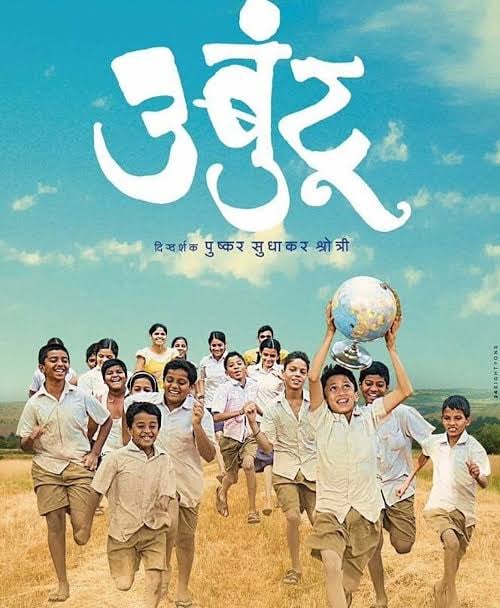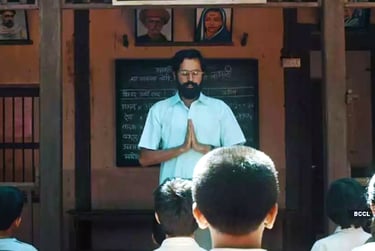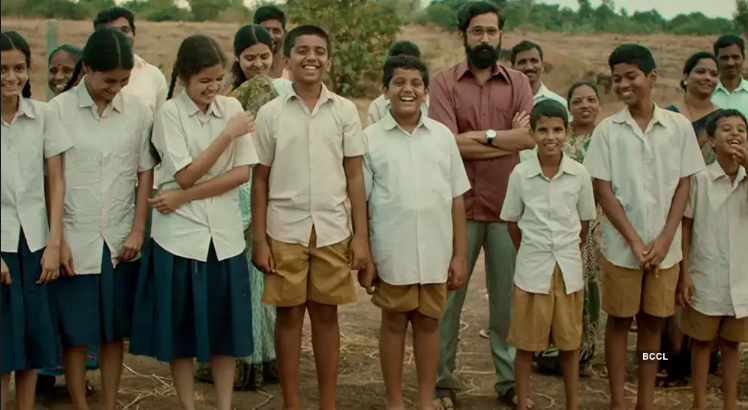"UBUNTU" – "I am because we are."
"Explore this movie review of 'Ubuntu,' a heartwarming Marathi film that delves into the challenges of education in a small village and the profound power of human connection, all while reflecting the mantra 'I am because we are.'"
10/22/20233 min read


"Ubuntu" is a Marathi movie that stands out with its fresh and heartfelt concept, despite facing challenges in attracting a wide audience. This is a common problem in the film industry today, where mass-produced remakes often overshadow movies with original and meaningful content. Many of these gems end up being underrated until years later when they finally receive the appreciation they deserve.
The movie is set in a small village, lacking in money, facilities, electricity, network, and internet but rich in thoughts, hospitality, peace, and dreams. From the very beginning, the film captures your attention with a unique perspective. It starts with a scene where two students are exploring their village through numbered glasses, creating a blurry vision. This immediately takes us back to our childhood, when we were eager to try on adult glasses and see the world through their lenses.
The story begins with a pressing issue in the village. The village head and other members contemplate shutting down the school due to low attendance. However, the teacher, played by Sarang Sathaye, is unwavering in his belief that the school must remain open, even if just one student is eager to learn. He understands that if the school closes, the dreams of those who want to study will be shattered, leaving no future for these students. This predicament is all too common in many villages today.


A pivotal moment arises when the village head sets a deadline for full attendance, threatening to close the school if it's not met. The rest of the story revolves around the school, the dedicated teacher, and how the students rally together to save their beloved institution.
The school itself is a humble one, with only a room or two for classes, a round metal object used as a makeshift bell, and a simple chalk-and-duster blackboard. When the school bell rings and the students gather for the morning prayer, a sense of nostalgia washes over the audience. The prayer goes as follows:
“Hich amuchi prarthana aan hech Amuche maagne,
Manasane manasashi manasasam vaagane.”
Translated, it means that this is our only prayer and our wish to God is for humans to treat one another as humans. These beautiful lines remind us of our school days and the importance of treating each other with kindness.


"Ubuntu" is also filled with endearing and comical moments, like when Chandu is trying to bring a reluctant student to school. The student attempts to run away, but Chandu manages to catch him and, gets him to agree by saying, "Shalet ye naytar aaichi shappath ahe tula" (your mother's swear is upon you to come to school). The student's plea to take back the swear is both relatable and amusing, evoking memories of our school days.
Sarang Sathaye's portrayal of the teacher is exemplary. Throughout the movie, you'll find yourself hoping that every school has at least one teacher like him. His teaching methods, such as writing small questions on the blackboard outside the classroom for students to answer before entering, are not only innovative but also effective. The film highlights how he solves students' problems, imparts valuable life lessons, and teaches them the meaning of the word "Ubuntu."
"Ubuntu" -"me ahe karan amhi ahot,"
which means "I am because we are."
The child actors in the movie, including Bhagyashree Milind, Arya Hadkar, and Atharva Padhye, deliver phenomenal performances that resonate with the audience.
Directed by Pushkar Shrotri, with a story by Bhalachandra Kubal and screenplay by Padma Kulkarni, "Ubuntu" successfully addresses the issues of education in villages and encourages us to reflect on the lack of facilities and resources for education in rural areas. Moreover, the film's most important message is to treat each other with humanity, reminding us of the profound meaning of:
"Ubuntu"
– "I am because we are."



